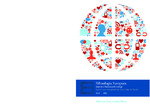Ethnologia Europaea (Vol. 42-2)
Author(s)
Karen Körber,
Ina Merkel,
Language
Undetermined[und]Abstract
Special issue: Though a seemingly stable concept in ethnological work,
“family” as a lived reality took and takes on innumerable forms
shaped by economic pressures, mobility and attendant social
transformations, and biotechnical interventions. The case studies
in this special issue focus on the ways in which social actors seek
to concretize as well as control what family could or should be.
While (bio-)technological innovation proves vital to fulfill
traditional imaginaries of a nuclear family, communication
technology is a key to keep transnationally situated families in
contact. Still, transnational work opportunities conflict with
traditional imaginaries of the wholesome families and impact
particularly women seeking to cross both borders and established
family norms. Popular genealogy as a hobby and passion
uncovers evidence that counters established narratives: instead
of long-term sedentary family lineages, evidence of migration
muddies the waters. Family metaphor, finally, serves, in one of
the case studies, as vocabulary to materialize imaginary kinship
ties among nuns. The five case studies are complemented by four
commentaries, exploring paths along which these themes can be
developed further.
Keywords
familiestudier; europa; feminisme; polen; catholicism; archives; monasticism; transnationalism; trafficking; transnationalisme; poland; østrig; communication technologies; kommunikationsteknologi; mobilitet; 21. årh.; genealogi; reproduktionsteknologi; klostervæsen; arkiver; antropologi og etnologi; family, studies of the; mobility; english; anthropology and ethnology; katholicisme; køn; feminism; gender; interviews; migration; austria; 21th century; reproductive technology; genealogy; europe; engelskDOI
10.26530/OAPEN_610152ISBN
9788763540445OCN
1030821123Publisher
Museum Tusculanum PressPublisher website
https://www.mtp.dk/Default.asp?Publication date and place
2012Series
Ethnologia Europaea, 2Classification
Anthropology


 Download
Download